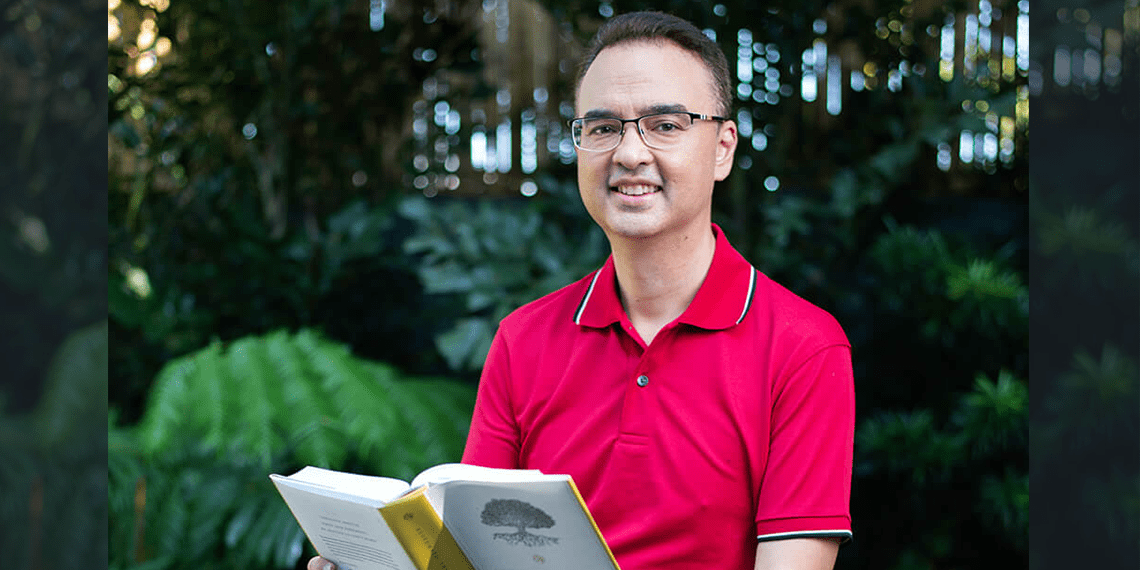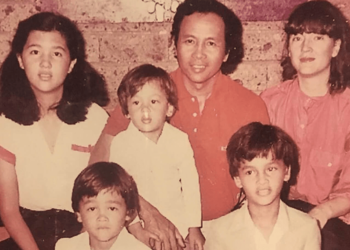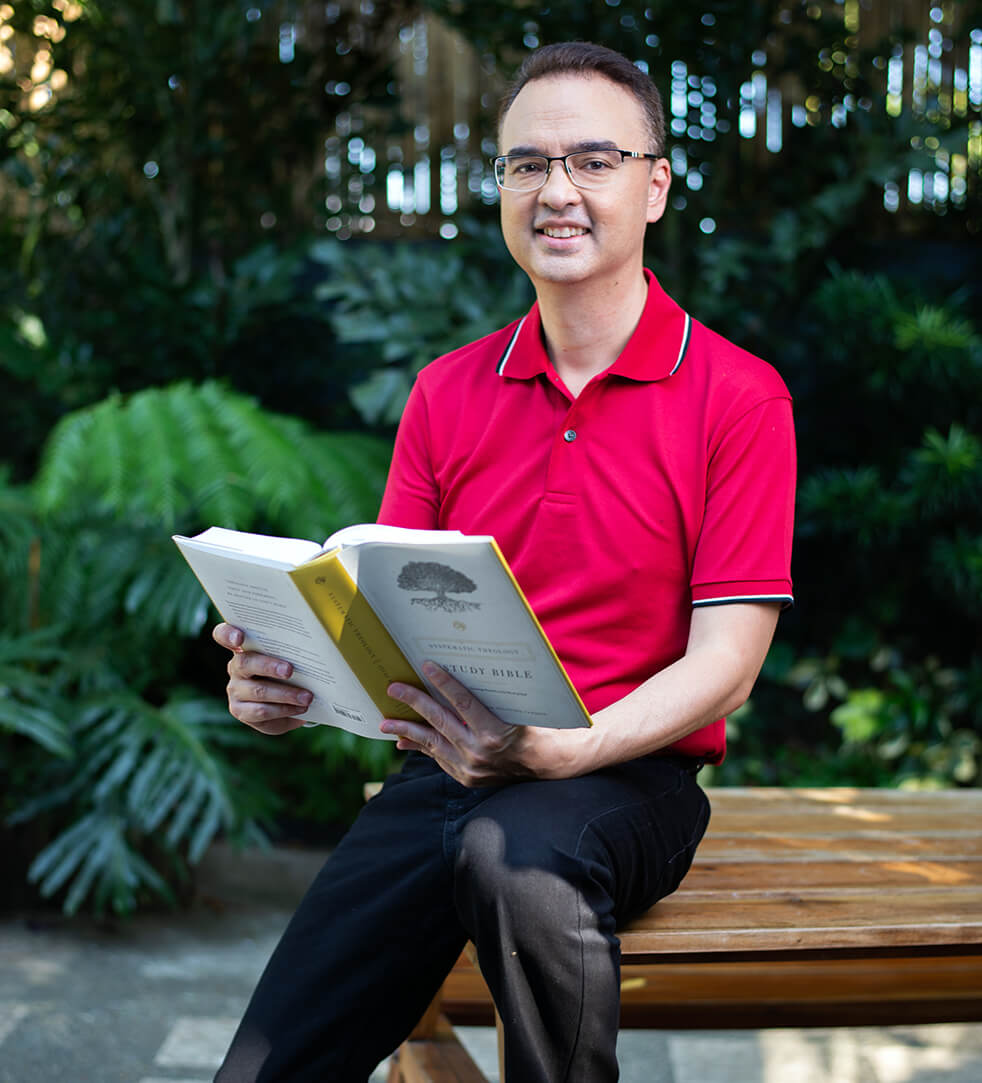
Prayers can move mountains. Prayers can lift a nation. Prayers can help us survive this pandemic. The power of prayer is not lost on Taguig-Pateros Representative, former Speaker Alan Peter Cayetano. For him, prayer is not only “communing with God… being one with God,” as it is much deeper and more personal.
“We always say that we love God, that God is very important in our lives. But how could we love him truly if we do not know Him well? We will know God through reading and listening to His words. And how do we fall in love with His words? It is through building a relationship with God. And how do we build this relationship? It is through prayer,” says Alan. “Prayer, therefore, is relationship-building with Him.”
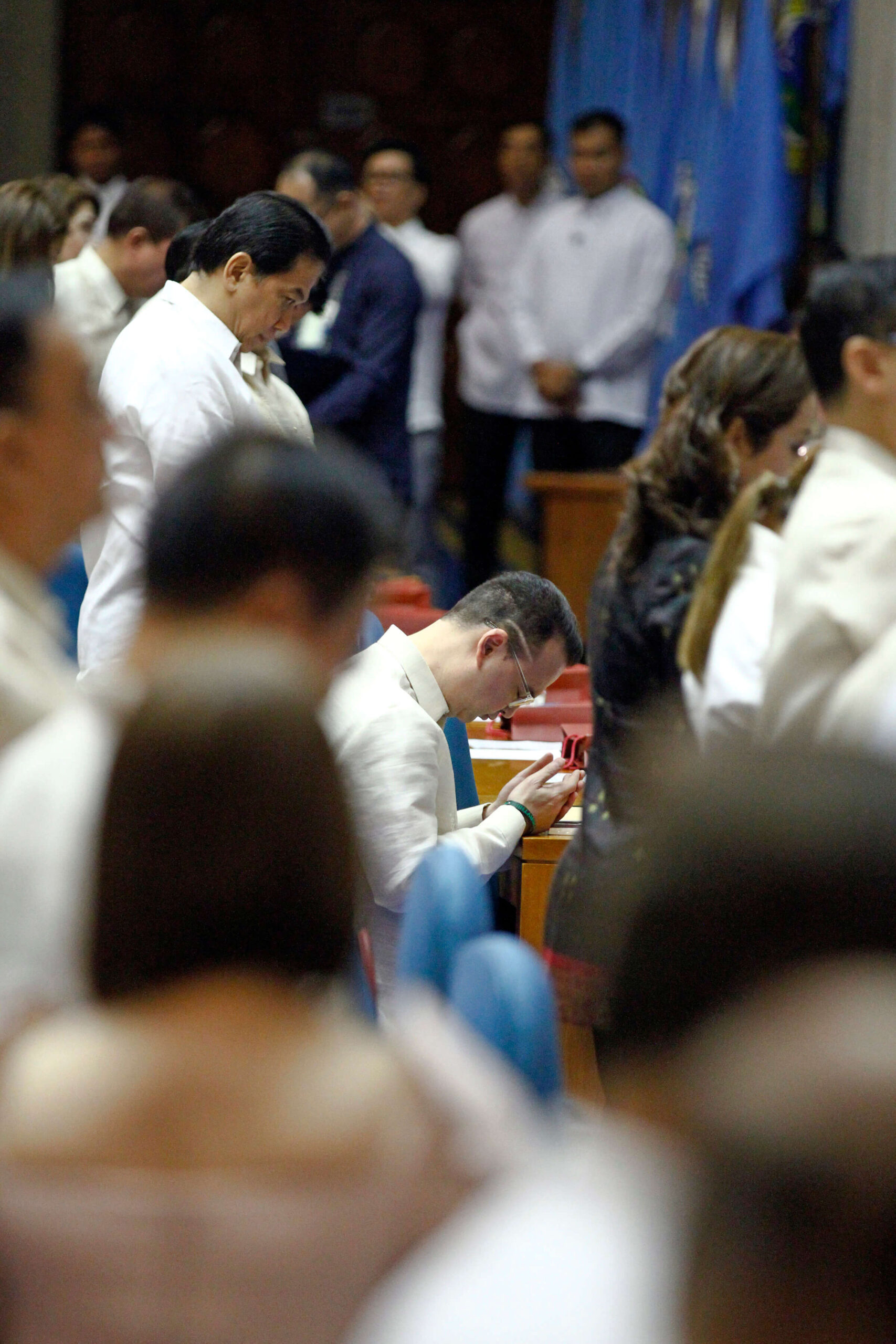
There are different ways to communicate; same with prayer. You can just look out of a window, think about God, and whisper a prayer. You can be in a dire situation, and lift up your worries to Him through prayer. Or you may be carrying a heavy burden, and cry and call out His name in prayer. You can also be happy and joyful, and you want to give thanks for all His blessings through prayer.
With all these forms of prayer, Alan believes that all these present an opportunity for you to ask yourself: “Who is God in your life?”
“When you pray, who is God in your life? Is He a Santa Claus − you pray to Him when you just need something, maybe a material thing? Or is He a Superman to you − someone you just need to magically erase all your problems and worries? Do you just pray because you need the newest, the biggest, the most expensive item?” he asks. “But if you have a genuine love and relationship with God… you worship Him, you praise His name, you become humble in His presence, and you long for His forgiveness, then you are in the ‘correct’ path of prayer. You are not only building, but strengthening your relationship with God.”
This personal passion for prayer is what moves him to even kneel down in public when praying, something his detractors have criticized as a “publicity move.”
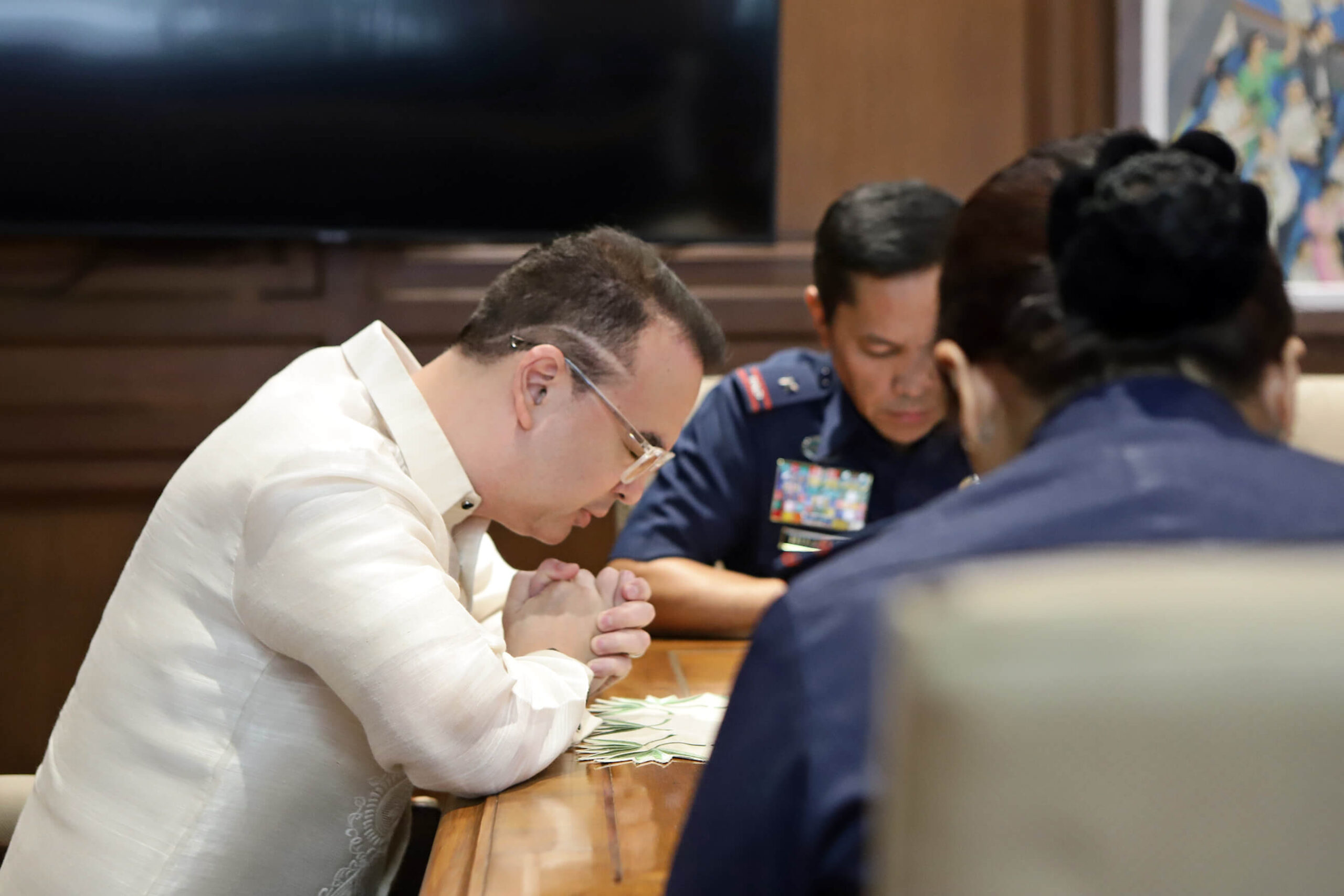
“Personally, that’s why when I read the Bible, or pray deeply, or sing during worship, I really kneel down. It’s because I feel closer to God. I feel more humble. I feel more giving. I know it’s enough that you bow your head, but to humble yourself and to show your respect to God, I couldn’t help but kneel,” he explains. “Getting down on my knees is really lifting up God in my heart and in my life. It simply means that I’m enthroning Him into my life.”
Alan believes that prayer is not just done in a church or at home. It is not also a scheduled task; for him, prayer is a “continuous conversation” with God.
“When I’m about to sleep, or even before I close my eyes, instead of thinking about anything, I pray. When I wake up, the first thought in my mind is to thank the Lord through prayer. I read the Bible, guided by a verse, and reflect before starting my day. Then throughout the day, anything I’m doing which I may feel or hear that is offensive to the Lord, I ask for forgiveness through prayer. If I hear the Lord’s name used in vain, I pray… ‘sorry Lord, forgive us for we are humans.’”
With this kind of passion for prayer, he tries to make prayer a part of normal tasks. “I noticed that no one is offended if I ask: ‘Can I say grace?’ or ‘Can I pray for you?’ or ‘Can I pray before we have our lunch?’”
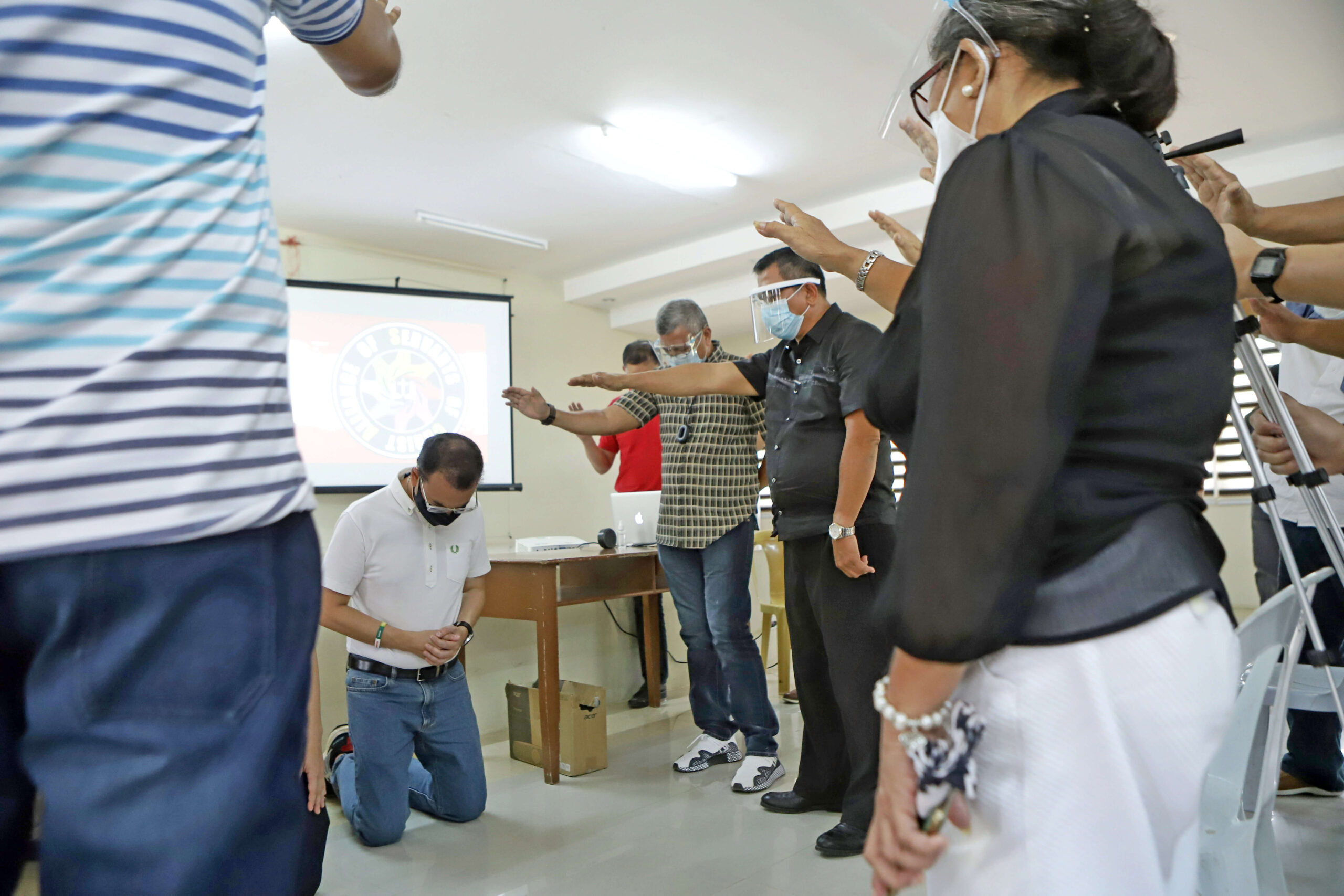
“For me, it’s an opening, regardless if another person would believe or not. Anyone is ‘touched’ if you ask for blessings or forgiveness. So I think in our world when everything is disputed, or there are instances of discrimination − we are all equal when it comes to prayer. That’s why a big part of every aspect of my life is prayer.”
As prayer and reading God’s word is a part of Alan’s life, he refers to Jeremiah 29:11 as his life verse.
“This verse is: ‘For I know the plans I have for you – plans to prosper you and not to harm you. Plans to give you hope and a future.’ I believe in this verse because it shows that God has a vision for each and every one of us. God, in His infinite wisdom and powers, would tell me that He has a plan for me. That is truly wonderful! And He didn’t stop there, He made it very clear − that we would be prosperous and away from harm. So for me, it’s a very exciting verse. Of course, the context of the verse was directed to God’s people who were suffering. They were in bondage, then the Lord said … “I have a plan for you.” It’s also a constant reminder for me to wait upon the Lord. To trust His plans. To wait for His timing.”
“‘This verse is: ‘For I know the plans I have for you − plans to prosper you and not to harm you. Plans to give you hope and a future’ … It’s a constant reminder for me to wait upon the Lord. To trust His plans. To wait for His timing.”
The verse after Jeremiah 29:11 is about faith and action − that after the plan is made, one must have faith and the necessary action to make things work. And this is what encouraged Alan as he moved upward in the world of politics and governance.
“When I was very young, I was always anxious and full of worries − I might fail in the exam, I might not get to the school I want, etc. So one time, my mom asked me directly − ‘Do you really know God? Do you have a relationship with God?” I began thinking after that question. So it was during that time that I started to know God, having a relationship with Him, accepting Jesus God as my Lord and Savior.”
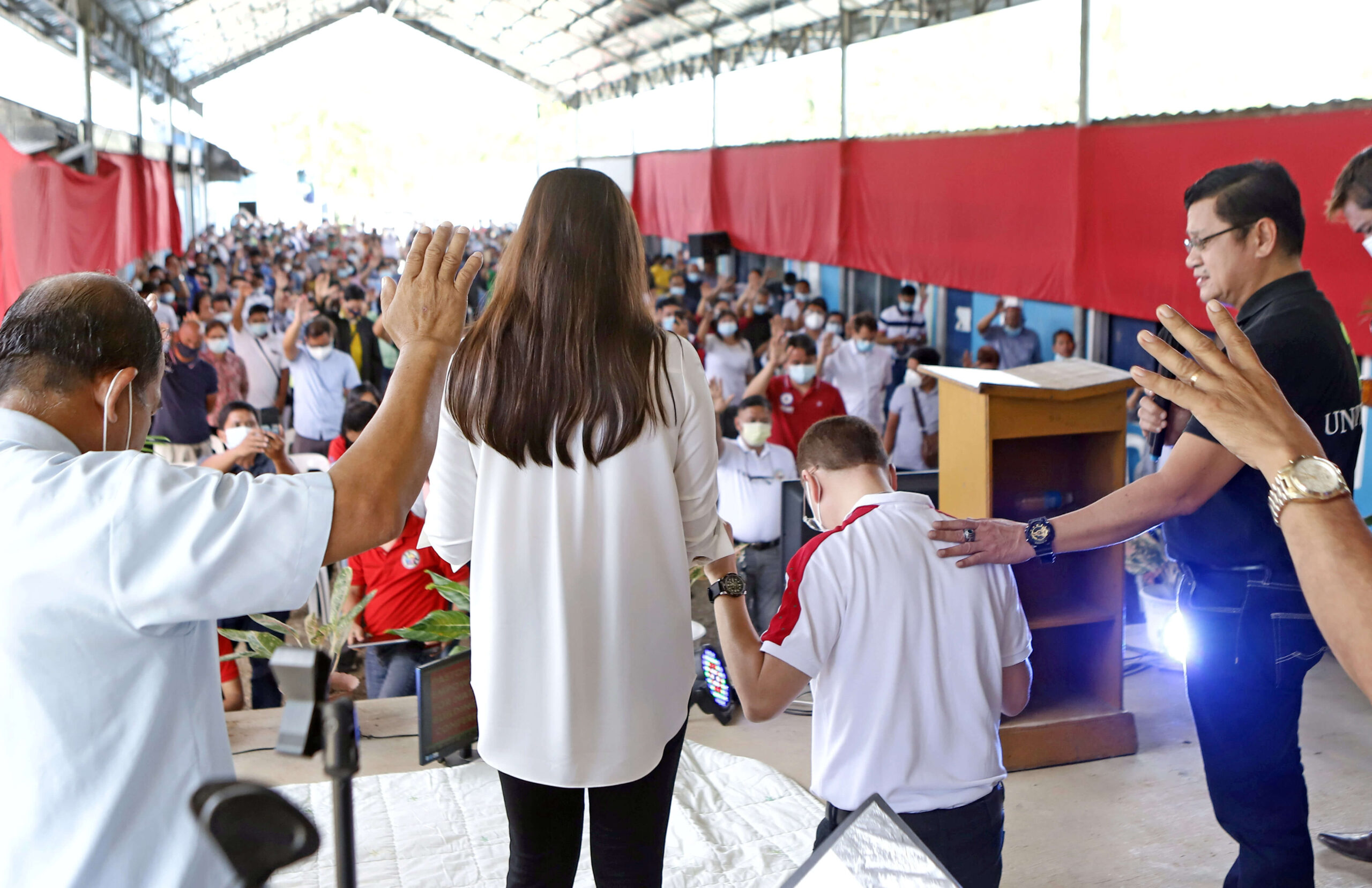
After that pivotal moment, Alan says that his fears melted away together with all the unnecessary stress and anxiety.
“Physically, I felt it. Something… like the weight of the world on my shoulders… it disappeared,” he recalls. “It felt like… it was clear as a morning light that God is with me. And if God is with you, no one can be against you.”


